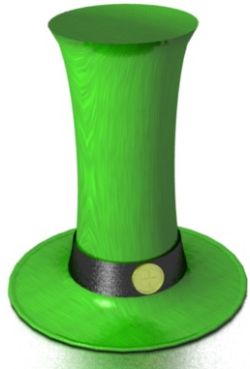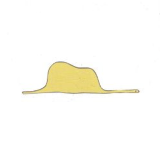
Lyra tells Bon-Bon about learning to play the harp, and being foalnapped by faeries.
Special thanks to The11thWonder for proofreading!
Inspired by the works of Herminie Kavanagh.
Cover made in Blender.

That sunny dome! those caves of ice! And all who heard should see them there, And all should cry, Beware! Beware!
Lyra tells Bon-Bon about learning to play the harp, and being foalnapped by faeries.
Special thanks to The11thWonder for proofreading!
Inspired by the works of Herminie Kavanagh.
Cover made in Blender.
Is that a top hat or a bong?
4097511 It is intended to be a top hat.
Bongs usually have pipes...I think. I honestly have very little experience with them. I'm not that type of artist.
This analysis conducted by request, through submission to: Professional Editorial Reviews.
You play a pretty good fiddle girl, but give the Fae his due
I bet a fiddle of horse hair against this mare, because I think I'm more clever than you.
Let's kick this jig.
It's not a bad narrative, but it falls into a lot of the standard traps of amateur short stories. The diction is solid, a stable grasp of English is displayed (though there are some narration and flow issues, which I will elucidate). There's a progression of events. Action happens. Ponies talk. So what's the big deal?
Yeah, what is the big deal?
That's the main problem. We'll drill into that, along with several more nuanced issues, after the bullets.
Done Well:
-Flashes of fluent tone.
-Adheres to a meaningful progression of events.
-Authorial buy-in. (author obviously enjoys the subject matter; important)
-Doesn't draw excessive attention to the phlebotinum, most of the time.
Done Not So Well:
****-Weak unifying atmosphere or theme.
-Anachronistic fallacies.
-Cloying conversation tone.
-Jilting transitions in perspective and action.
-Stilted dialog.
-Bad: He had shrunk it by magic *Drew excessive attention to the phlebotinum.
-Disjointed sections. The story and the in-story are incongruent.
-Weak climax.
I'll go chronologically:
-Never ever ever ever ever ever ever ever (was that 7 evers?) start a story with "Well", unless "well" has some profound meaning, at which point is ceases being a word and becomes a symbol to the text. In that case, it's fine. The other 99.9999% if the time: it isn't.
I get that you're going for a conversational tone. No problem with that. It's a first person narration. The way the story kicks off, however, establishes a tone of hesitancy too early and veers into cloying. A good rule of thumb is to finish the story, then go back to the beginning and see if the opener grabs the reader and establishes the narrative. This doesn't.
This is a high point. I like how you employed asyndeton there. Sadly, it's leveraged only a few times. Study this.
Maladroit manipulation of narrative distance is a consistent issue. Sometimes you do it, sometimes you don't.
Bon-bon is the narrator. She can't know what Lyra's thinking or why Lyra's doing something. Everything from her perspective is an observation.
It's not a solid rule. I fully support changing the angle, so I don't take issue with vacillating between first and third person, but this is clumsy. It comes off as telling in the midst of action, and it blunts the story's impact. Unless you're writing a character with a tenuous grasp on the here and now, make these transitions subtly and rarely. These have the subtlety of a shillelagh to the jibs.
For an example of this done right, see Hills Like White Elephants by Hemingway. It's theatrical third-person, but he alters the perspective once and only once, and it changes the whole story. See if you can find it.
Cringe-worthy. Until you grasp how to address the audience, don't. It jerks the reader out of the story.
Is it or isn't it? Statement ambiguity should only be used in dialog. Stay direct in the narrative action. This is another case of clumsily addressing the reader. If you want Bon-Bon to be confused, frame it.
As is, it's spineless diction. It comes off as smarmy. Readers want ambiguity, but they don't want the author jumping up and down, pointing at it, shouting Hey, look! I put some ambiguity there! Right there! Framing dubiety isn't just bad, it's ironically bad.
You did this better later (I'll deviate from chronology for sake of subject):
This is addressing the audience done right. The story is wildly inconsistent with asides. Delete “you know”.
Anachronistic fallacy. Several of these pop up. If it was the last thing the narrator remembered, there would be a scene transition or the story would end.
-”Somehow” is fluff. Only use “somehow” when you want to draw attention to an undue level of confusion. Bon-Bon is able to explicate clearly, so it's out of place.
*An example of conversational tone done right. This seems like something a character would realistically think. Honesty and exasperation together entertain. That's how humans work. If the whole narrative was like this, it would be vastly more readable. Do this more.
Inclusion of fluff sentences like this are rookie authorial mistakes. Display context through action, don't force context and shoehorn the action and dialog into it.
Fluff. Cut it. Cut everything like it. I'll stop citing individual cases. Elaboration below.
'Still' indicates a contrast, not an affirmation. You want to affirm your previous statement. Delete 'Still'.
All in all, not bad. These are mistakes a lot of authors make. Let's drill further.
Major, unifying issues:
Undue loquacity.
You use too many words.
Lyra's exposition dump is jilting and her narration is downright boring. No fancy technical jargon there. It's just boring. Considering that it's 70% of the story, that's bad. It's just too prolix. I get that it's Lyra talking to Bon-Bon. It's an in-story narration, so it avoids being a cardinal sin, but it's still cliche and off-putting.
Never use three words when one will do. If you're waxing poetic, make sure it's for a reason. Add atmosphere, develop character, or cut the fluff.
Also, use less adjectives. Tell stories with verbs and nouns. Use all others sparingly. (see what I did there?)
The road to hell is paved with adjectives.
Stilted conversation.
The dialog feels unnatural, mostly as an extension of the above problem. Here's some tips:
1.- Fiction dialog isn't like real speech, but it should read like real speech. Cut the fluff (am I establishing a theme yet?). Take out all of the words that don't relate to the plot.
2.- Don't dump too much information at once. Space it out, or allude to it without actually saying it. This will get easier the more you write.
3.- Show context, then insert speech. How the dialog sounds in the reader's head should come from the mood, not the dialog itself. Example:
"But I don't want to go to sleep yet," he whined.
It's concise, but it's not compelling. Let's try that again, with context.
He stood in the doorway with his forelegs rigid as flagpoles. His red, tear-rimmed eyes glared up at his mother.
"I don't want to go to sleep yet."
Did you better envision the second passage?
Weak/Unestablished Theme
Remember that “big deal” I was talking about?
Here it is.
There isn't one.
No big deal, or unifying theme, is really elucidated. If her cutie mark story is the big deal, it's not framed well. The story rockets by it in its exposition dump of fairy and magic stuff. The whiz-bang-pow is put in front of the story, and it suffers for it.
Why should the reader buy into this story? Is it about the wonder of the Fae world? Is it about Bon-Bon's love life? I don't know.
Bon-Bon's rant is inorganic. It's interesting in and of itself, but it doesn't tie into the rest of the story.
Lyra's story is whimsical and entertaining (save for the prolix, as discussed), and it smacks of the material that inspired it, but why is it there? It doesn't relate to anything. Lyra's longing for Equestria is only mentioned off-hand. It's shoehorned.
The addition of atmosphere is impossible without understanding what atmosphere that needs to be. As the reader, I don't know how I'm supposed to be feeling about this. As the first chapter of a longer story, it might work. As a standalone tale, it's too disjointed.
It all culminates in a watery resolution, because the reader has no idea why they're there.
In closing:
-Use purposeful words.
-Establish a reason for the readers to buy in. Not just ”Some stuff happened, and it involved fairies, so you should read it.” What happened that was pertinent to tangible, hind-brain type feelings?
-Whiz-bang-pow is a snack. Overarching theme and narrative tension are steak and potatoes. Always send your readers away stuffed. Courage comes from a full belly, all else is abandon.
Verdict: Not publishable. Flashes promise, but still a freshman effort.
Suggested Reading: The Man in a Case by Anton Chekhov; Confessions of a Coward by Charles Bukowski (dialog); Hills Like White Elephants by Ernest Hemingway
Hi!
I quite enjoyed your work and decided I'd write a review on it. Hopefully it'll bring you a few more readers. This story deserves to be read. I did try to write a balanced review, however, which means I did include some harsh critique of your story.
You can find it here.
Very nicely done. A beautiful fairy story fit for the books.
Really fun little story, though I'm not sure Bon Bon's bit needed to be quite so long. Very much enjoyed it.
This wouldn't happen to be related to the old movie 'Darby O'dill and The Little People' would it?
8004133 Actually, it's based on 'Darby O'Gill and the Good People ', a book of short stories by Herminie Templeton Kavanagh. These are in the public domain, and you can read some of them here, if you're curious: https://en.wikisource.org/wiki/Darby_O'Gill_and_the_Good_People
The movie (which I have also seen and did enjoy) was probably based on that as well, but I can't say for sure.